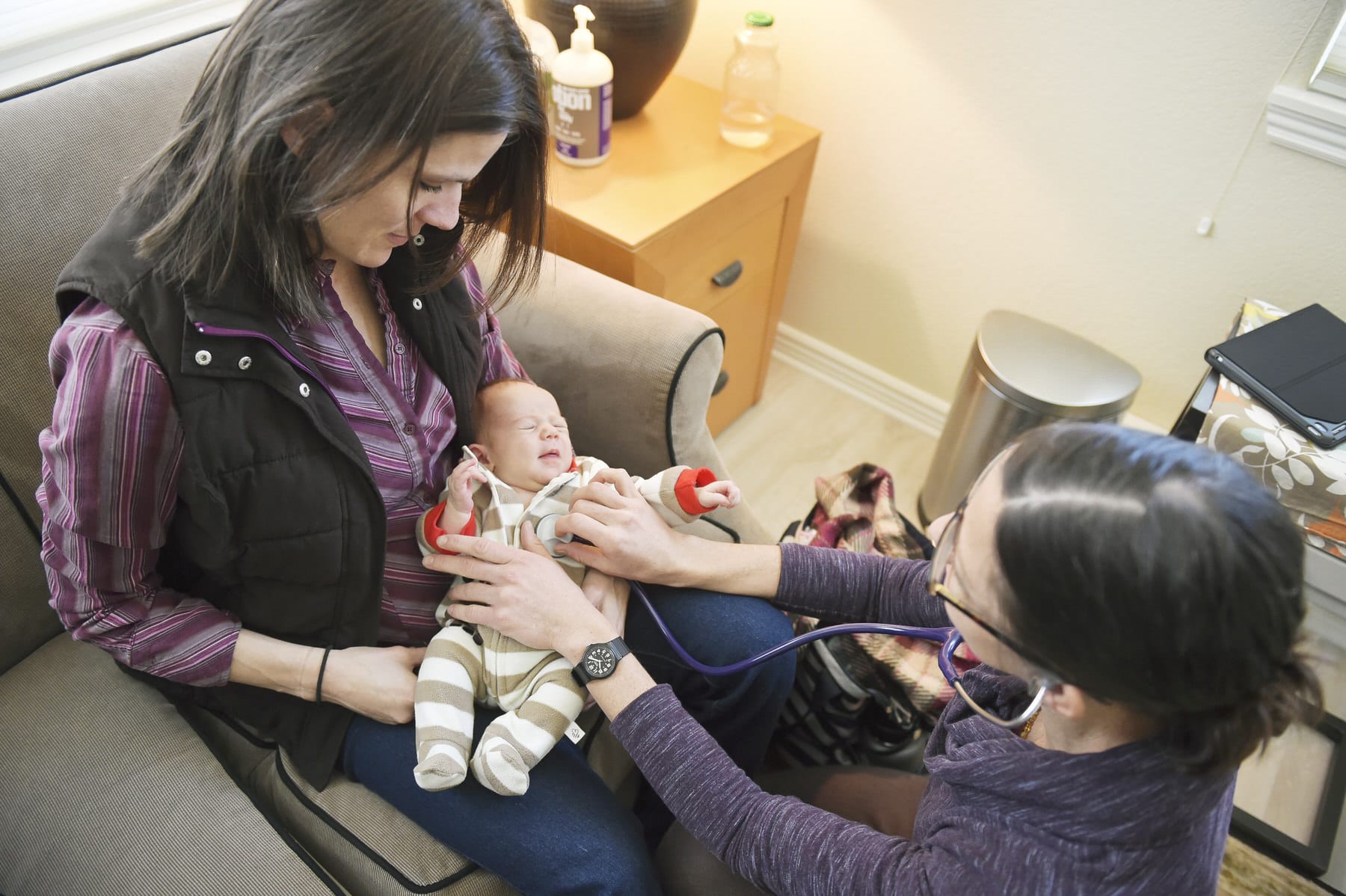A little-noticed provision in the American Recovery Act could boost access to postpartum health care, a step forward in the fight to combat the nation’s pregnancy-related death crisis.
The change gives states the option to extend eligibility for Medicaid — the public insurance plan for low-income people that covers almost half of the nation’s births — so that people can stay covered for a full year after giving birth.
Reproductive health experts have been pushing for this change for years, citing its potential to reduce the United States’ pregnancy-related death rate. Currently, the United States has twice the number of deaths that occur within a year of giving birth than other wealthy nations. Black and Native American women are two to three times more likely than White, Latina and Asian-American women to die within a year of childbirth, per the Centers for Disease Control and Prevention. The public health agency notes that most of those deaths are preventable.
“We know that the entire year after birth is a period where women have higher risk of experiencing complications related to their pregnancy and also related to chronic conditions that may have been preexisting or emerged during pregnancy,” said Jamie Daw, an assistant professor of health policy and management at Columbia University’s Mailman School of Public Health. “If we are able to catch early warning signs, we could be preventing death.”
Researchers like Daw, who have studied the issue, found that improving access to Medicaid could help. Currently, pregnant people with insurance through the program lose their coverage six weeks after they give birth, even though the first postpartum doctors’ visit doesn’t take place for six weeks.
That means the doctor may identify concerns about a new parent’s health — whether it’s postpartum depression or physical health complications — just as someone is losing insurance. That makes it far more difficult to treat the problem and prevent it from worsening. Close to a third of pregnancy-related deaths occur between 45 days — or just after the six-week mark — to a year postpartum.
Still, the sources of pregnancy-related deaths are complex, experts agree, and coverage is only one part of the solution. Racial inequities in birth outcomes persist at all income levels — a Black person with insurance is still more likely to suffer a pregnancy-related death than a White person with insurance. Research suggests implicit bias in the medical system is a crucial issue to address.
“Health insurance is really critical to make sure that when women do experience a warning sign they can go get the care they need,” Daw added. “But just providing insurance — we know that’s not going to eliminate health disparities.”
It’s not clear how many states will choose to extend postpartum Medicaid coverage. Since Medicaid is jointly run by state and federal governments, individual states have considerable freedom in determining how their individual Medicaid programs work. Under the law, Washington will pay the majority of any new insurance costs for people newly covered through Medicaid, but states will incur some expenses, too.
Chiquita Brooks-LaSure, Joe Biden’s nominee to head the Center for Medicare and Medicaid Services, has written about expanding Medicaid coverage as a tool to improve pregnancy-related health outcomes. If confirmed, experts believe she will use her authority to encourage more states to adopt the extension.
But many are looking at previous fights — in particular, the fierce debate over whether states should opt into the Affordable Care Act’s expansion of Medicaid eligibility — as a prelude of what’s to come. To date, 12 states have declined the ACA Medicaid expansion, including Texas, Georgia and Florida.
If the divide is similar, some worry that could mean deepening national inequality when it comes to birth-related outcomes — where things improve in some states, but deteriorate in others.
“I’m happy that we finally got something done. I’m disappointed it’s optional,” said Dr. Joia Crear-Perry, an OB/GYN and the president of the National Birth Equity Collaborative. “What happens in deeply southern states is going to be a battle. I’m not optimistic that Alabama, Mississippi, Georgia will say, ‘Great! We’ll now take it up.’”
Advocates planning to lobby on the state level expect an uphill battle in many parts of the country. And extending Medicaid eligibility is still only a step toward making sure people can access health care before and after they give birth.
“This is a wonderful start. And we have to make sure we understand it as a start,” said Dr. Jamila Perritt, an OB/GYN and president of Physicians for Reproductive Health.
Perritt is arguing for changes like enhancing Medicaid coverage, which fewer medical providers accept since it pays them less than private insurance. That means people who give birth on Medicaid have fewer choices in picking a doctor or birth-related specialist.
And in some ways, Daw said, extending coverage delays the uninsurance problem, but it doesn’t solve it. Even if states do extend Medicaid coverage, new parents’ health can still suffer after the one-year postpartum mark. Addressing that, she said, would require more sweeping change, such as the public health insurance option Biden campaigned on.
“The one year is arbitrary in the same way the 60 days is arbitrary,” she said. “There’s a general need to address all of these gaps, and have in general a less complicated system.”





